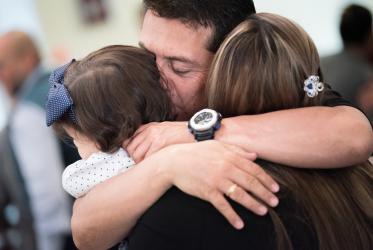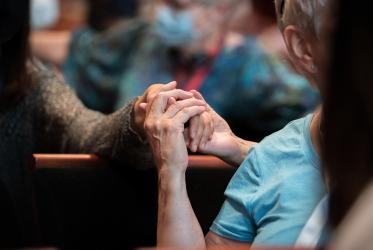Displaying 1 - 20 of 52
17 April 2024
WCC, WHO commemorate 50 years of collaboration
04 April 2024
“Circle of Prayer” reverberates out from Dover—to the world
21 February 2024
WCC webinar explores decolonizing beauty
11 December 2023
From hostility to hospitality: Closing prayers at Karlsruhe
09 September 2022
Bible studies bring ways to learn how Christ’s love moves us
06 September 2022
Saturday morning prayers invoke movement for truth and righteousness
03 September 2022
Unity is key when health crisis poses new challenges in Asia
28 February 2022


















